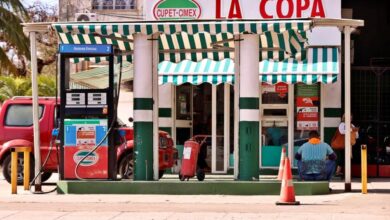Fuel Theft and Violence Cripple Ecuador’s Oil Industry

Ecuador’s oil sector is bleeding hundreds of millions due to fuel theft and violence orchestrated by organized crime. With Petroecuador’s staggering loss of $215 million and workers under constant threat, the nation is in a race against time to stem this escalating crisis.
Fuel Theft and Its Impact
Ecuador’s oil industry, the backbone of its economy, is under siege from organized crime. Criminal networks are tapping pipelines to steal gasoline, diesel, and jet fuel, with much of the stolen product fueling drug trafficking operations. State-run oil company Petroecuador told Reuters that cumulative losses from fuel theft totaled $215.1 million from 2022 to October 2024.
This crisis is not just growing, it’s ballooning. The number of illegal taps has skyrocketed from 32 in 2022 to a staggering 773 in the first ten months of 2024. A single pipeline section of 166 kilometers had 136 illicit taps, leading to a colossal $17 million in losses this year.
The stolen fuel is not just a loss, it’s a drain on Ecuador’s economy. Cartels use this fuel for their operations, with police alleging that the gasoline is used to manufacture precursor chemicals for cocaine production and power high-speed boats that transport drugs northward through the Pacific. This systemic fuel theft is fundamental to the profitability of criminal organizations in Ecuador, as Renato Rivera, Director of the Ecuadorian Organized Crime Observatory, points out.
Violence Threatens Workers and Operations
Beyond financial losses, violence against oil sector employees has escalated. Workers in provinces like Esmeraldas, a hub for Ecuador’s oil industry, face extortion and threats. According to union leader Jipson Martinez, an estimated 25-30% of the 700 workers in Esmeraldas have been extorted. Martinez himself was forced to leave the province after refusing to pay extortion demands, which led to an attempted bombing of his home in late 2022.
“Workers are defenseless,” Martinez told Reuters, highlighting the lack of adequate security measures to protect employees. These attacks aren’t limited to extortion; theft of copper wiring from oil facilities has further disrupted operations, causing $4 million in losses and a 1% dip in output over nine months.
Petroecuador technicians frequently face challenges when responding to illegal taps. Removing these homemade valves, which criminals connect to pressure hoses, often results in fuel spills and requires halting operations. “Up to five taps are reported per day across various pipelines,” Petroecuador representatives said, noting that cleanup and repair efforts can take up to 12 hours.
Government Measures Fall Short
President Daniel Noboa’s government deals with the crisis by using more military patrols and drones to watch areas from above. Plans exist for a joint command center with police and other groups. These steps have led to some success. They caught 18 illegal storage pools of stolen fuel. However, the problem is still huge.
Lieutenant Colonel Hugo Amores, head of the police hydrocarbons crimes unit, emphasized the need for judicial reforms to complement law enforcement efforts. “Without forceful laws, the work of the police and the armed forces is a joke,” he said. Current penalties for fuel theft range from two months to five years, while organized crime charges carry sentences of up to 10 years. However, enforcement often focuses on individuals caught in the act rather than dismantling the more extensive criminal networks.
Ecuador’s geography further complicates efforts to curb fuel theft. With 1,655 kilometers of fuel pipelines traversing remote Amazon regions and the Pacific coast, criminals exploit the isolation to dig down buried pipelines and install illegal taps. These actions have compelled the authorities to stop pumping on some pipelines altogether. The pumping is on hold.
Economic and Environmental Consequences
Fuel theft has broader implications for Ecuador’s economy and environment. As one of the world’s top oil-exporting nations, Petroecuador contributes $7.5 billion annually to the national budget, nearly a quarter of the country’s total income. Losing hundreds of millions to theft weakens Ecuador’s financial health. Rising violence and political confusion add to the problem.
Environmental worries are growing. Illegal taps might lead to fuel spills that dirty the soil and water. These spills annoy local communities, which have long protested the oil industry’s effects on nature. Petroecuador technicians told Reuters that these spills often demand extensive cleaning, which requires many resources.
Meanwhile, the stolen fuel continues to support Ecuador’s drug trade. Criminal groups linked to Mexican cartels, the Albanian mafia, and other global gangs have turned this Andean country into an essential route for cocaine. More controls are in place, but crime keeps rising. Crime is genuinely growing.
A Nation at a Crossroads
The crisis in Ecuador’s oil industry reflects a broader struggle against organized crime that has engulfed the country. Murders, drug transport, and gun smuggling have increased over the past five years. Violence peaked in well-known events like the killing of a presidential candidate. These problems probably highlight the need for a united national answer. This answer should tackle the immediate threat to the oil sector and the real causes of criminal acts.
President Noboa, who promised better safety, faces significant challenges. His team plans to run for re-election in February 2025. Their response to the fuel theft problem will likely test their bigger attempts to fight organized crime and bring back peace in Ecuador. The response to the fuel theft crisis will very likely be crucial for them.
Also Read: Colombia’s Economic Battle to Guard Oil Pipelines Amid Armed Conflict
Without decisive action, the dual threats of fuel theft and violence could destabilize a nation already grappling with economic and political turmoil. As the security analyst Rivera warned, “The whole system about hydrocarbon trafficking is concentrated on immediacy…and not on the networks of criminal groups behind the crime.” For Ecuador, breaking this cycle will require vigorous enforcement and a renewed commitment to justice and accountability.





